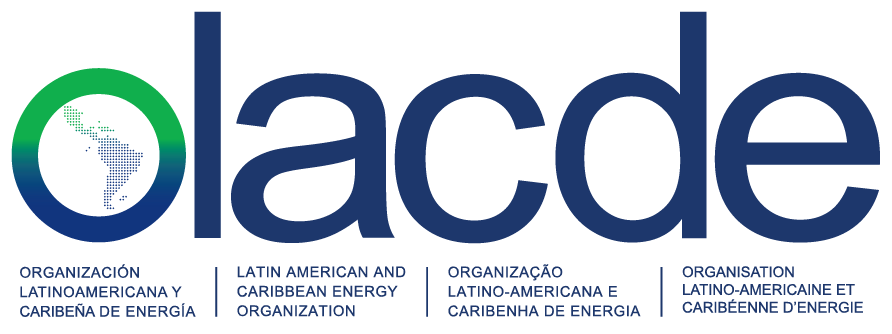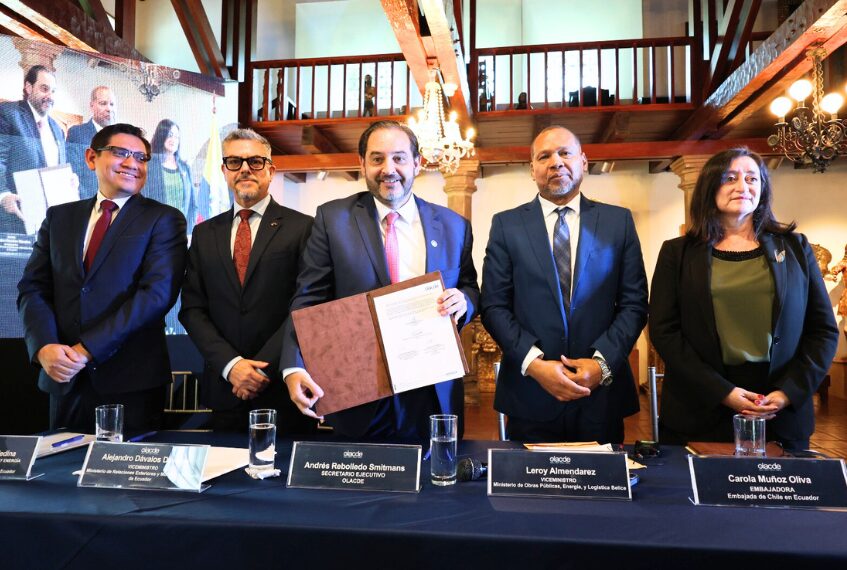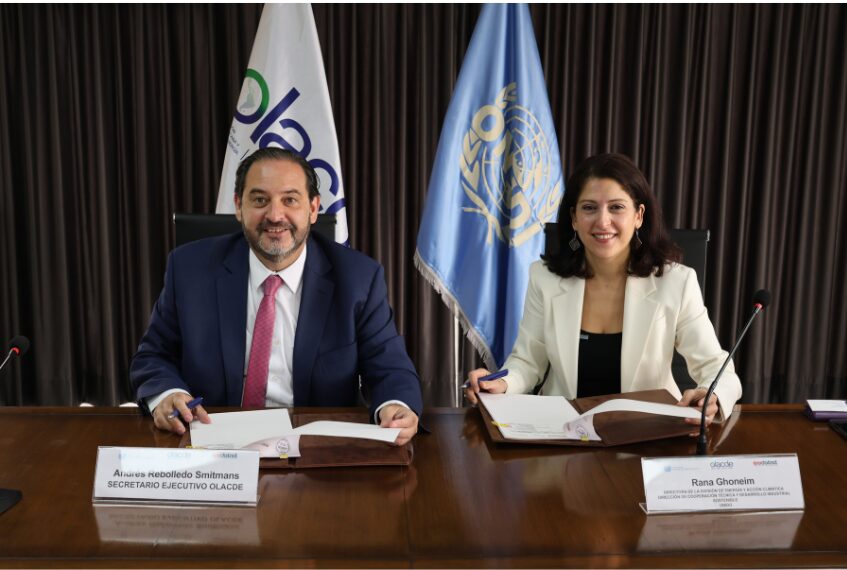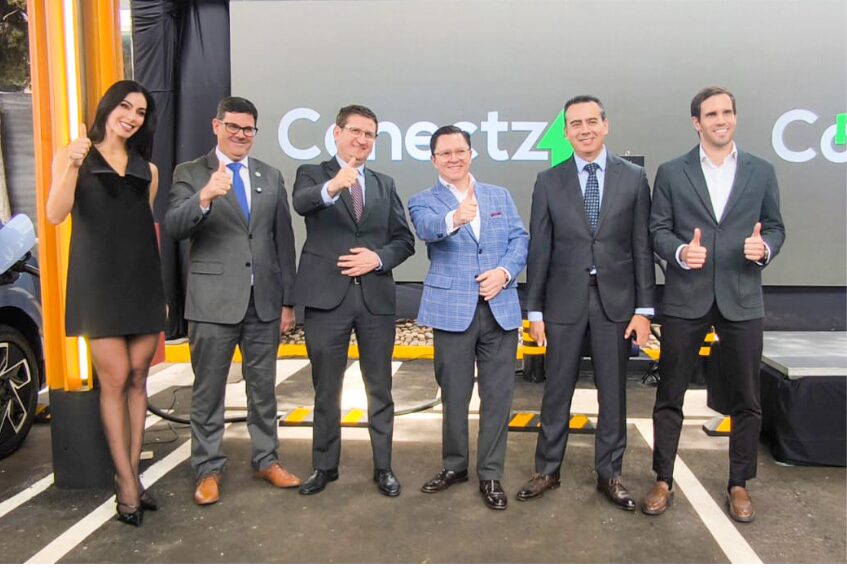CAF – Development Bank of Latin America and the Caribbean – and The Latin American and Caribbean Energy Organization (OLACDE) held a technical meeting in Buenos Aires focused on the future of natural gas in Mercosur countries and Chile. The event marked the closing of the second phase of the Regional Gas Integration Project, which focused on medium- and long-term projections for natural gas supply and demand, and was preceded by working sessions aimed at advancing dialogue and consensus among the six countries, involving both public and private sectors.
The event brought together representatives from governments, energy companies, and international organizations to strengthen a technical dialogue space on the role of natural gas in regional energy security and its complementary role in the transition toward more sustainable energy sources.
The opening session was led by Jorge Srur, CAF Southern Regional Manager; Andrés Rebolledo, Executive Secretary of OLACDE; Ernesto López Anadón, President of the Argentine Institute of Oil and Gas (IAPG); and Federico Veller, Undersecretary of Liquid Fuels at Argentina’s Secretariat of Energy.
In this context, Andrés Rebolledo, Executive Secretary of OLACDE, provided an in-depth analysis of the role of natural gas in the region’s energy agenda, highlighting its strategic relevance for integration and economic development in the Southern Cone. Rebolledo noted that 75% of the gas consumed in South America comes from domestic production and is expected to continue accounting for around 20% of the energy matrix by 2050, even under carbon neutrality scenarios. He called for the promotion of a low-carbon gas industry, based on traceability, technological innovation, and cooperation between the public and private sectors.
Jorge Srur, CAF Southern Regional Manager, reaffirmed the organization’s commitment to a fair and feasible energy transition, highlighting joint achievements such as the Methane Observatory and financing of strategic projects, including the Northern Gas Pipeline in Argentina.
Ernesto López Anadón, President of IAPG, recalled that regional gas integration originated in the private sector and that, thanks to resources like Vaca Muerta, the region now has tangible conditions to move toward structural integration.
Meanwhile, Federico Veller, Undersecretary of Liquid Fuels at Argentina’s Secretariat of Energy, emphasized recent regulatory advances, record gas export levels, and a national energy outlook spanning more than 60 years. He stressed that the success of integration will depend on robust contracts, legal certainty, and a shared regional vision.
During the meeting, participants discussed economic aspects, energy demand projections, private sector challenges, and inter-institutional cooperation opportunities in the context of the energy transition.
Among the findings of the study presented, a projected increase in total natural gas demand in the Southern Cone between 2025 and 2040 was highlighted. Depending on the scenarios analyzed, gas demand for power generation grows, even under different levels of renewable energy penetration. For liquefaction and urea production, several incremental projects were identified in addition to those already announced, some of which depend on new potential pipeline routes. In Uruguay, projections show low demand, mainly due to industrial processes that have limited flexibility to adopt new technologies.
On the supply side, regional projections point to more than a doubling of total current production by 2040, due to successful development of formations in Argentina and Brazil.
Additionally, the study highlights continuous growth in renewable generation, reinforcing its competitiveness and emphasizing the need to expand electric interconnections as crucial tools to optimize the efficient use of energy resources.
Watch the full event at the following link: https://www.youtube.com/watch?v=jJb4M-a5i3E





